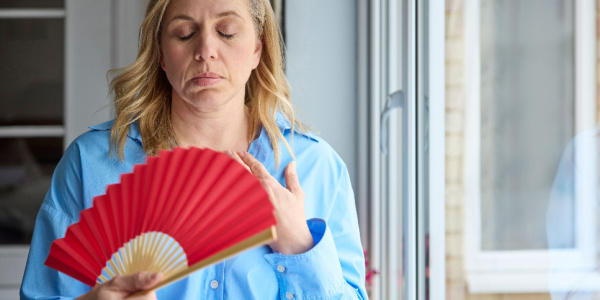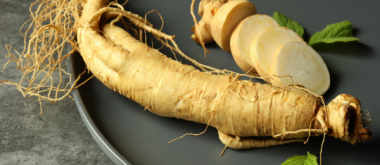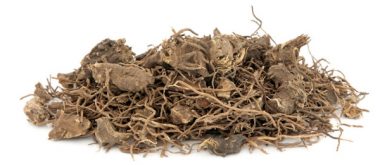Menopausal symptoms are widespread and can severely affect quality of life. Many affected women are looking for natural ways to manage their symptoms. New research has found that menopausal women who regularly swim in cold water report a significant improvement in their physical and psychological symptoms.
The Benefits of Exercise for Menopausal Symptoms
Exercise is important for good health and optimal well-being. Many women struggle with unwanted weight gain, especially as they get older. However, physical activity is not only beneficial for the figure. Exercise can strengthen bones and counteract the loss of muscle mass during the menopause. It can also improve heart health and promote restful sleep. Exercise also releases beneficial endorphins that reduce stress, improve mood and reduce anxiety.
Swimming in Cold Water
In a study published in the journal Post Reproductive Health, 1,114 women, 785 of whom were menopausal, were asked about the effects of swimming in cold water on their health and well-being. The results suggest that women during menopause experience a significant improvement in their anxiety (46.9% of women reported this), mood swings (34.5%), low mood (31.1%) and hot flushes (30.3%) by swimming in cold water. In addition, the majority of women (63.3%) swam specifically to relieve their symptoms. Some of the women quoted in the study stated that they found the cold water to be an “instant stress and anxiety reliever” and described the activity as “healing”. The researchers found that cold water improved mood, and reduced stress in the outdoor swimmers. Ice baths have long been used by athletes to aid muscle repair and recovery.
The researchers also wanted to investigate whether swimming in cold water improved the women’s menstrual cramps. Of the 711 women who suffered from menstrual cramps, almost half said that swimming improved their anxiety (46.7%), and more than a third said that it reduced their mood swings (37.7%) and irritability (37.6%). Despite the benefits of cold water swimming, the researchers also pointed out that the sport is associated with certain risks. Care must be taken when swimming in cold water, as participants may be at risk of hypothermia, cold water shock, cardiac arrhythmia or even drowning. Water quality standards can also vary depending on where they are swimming. Pollution of the UK’s rivers and seas from untreated sewage is an increasing problem. And unfortunately, this can increase the likelihood of gastroenteritis and other infections.
The study supports these claims and the anecdotal evidence also highlights how this activity can be used by women to relieve physical symptoms such as hot flushes, aches and pains. However, further research is needed into the frequency, duration, temperature and exposure required to bring about a reduction in symptoms. The experts hope that their findings will provide an alternative solution for women struggling with the menopause and encourage more women to exercise.
Cognitive Behavioral Therapy
Controversy over the adverse effects of hormone treatments is leading menopausal women to look for low-risk alternatives. Cognitive behavioral therapy is a form of psychotherapy in which patients learn to change dysfunctional emotions, behaviors and thoughts, and develop personal coping strategies. Research shows that this type of therapy can significantly improve hot flushes, depression, sleep disorders and sexual problems.
Acupuncture
Acupuncture can also be helpful. In this procedure, which goes back to traditional Chinese medicine (TCM), fine needles are placed at special points in the skin that are located on defined “energy pathways” (“meridians”) in the body. These meridians can have a positive influence on the function of individual organs. Studies show that acupuncture can reduce the number of hot flushes and night sweats associated with the menopause by up to 36 percent.
Meditation
Meditation is known to calm the mind, reduce anxiety and stress and improve sleep. Meditation activates the parasympathetic nervous system, which means that the body enters a calming state. All of these factors can contribute to a reduction in menopausal symptoms.
Nutrition
A healthy diet with plenty of fruit and vegetables benefits the human body in many ways. However, it can also play a role in alleviating various menopausal symptoms. Studies show that dietary factors can play a decisive role in oestrogen production, oestrogen metabolism and consequently also in menopausal symptoms. In particular, the consumption of fruit or a Mediterranean diet, which is characterized by a high proportion of vegetables, fruit, cereals and nuts, has been associated with fewer menopausal complaints and symptoms.
Herbs
Although hormone therapy is the most effective way to treat most menopausal symptoms, some women turn to herbal medicine either because they are not eligible for hormone therapy or because they are concerned about possible side effects. Fennel has been used for centuries both in cooking and as an herbal remedy. The plant is known to alleviate digestive problems. This herb with essential oils has phytoestrogenic properties. Phytoestrogens are estrogen-like chemicals in plants that are used to effectively treat a variety of menopausal symptoms. Research shows that fennel helps with sleep disorders and high blood pressure, as well as alleviating sexual problems.
Black cohosh, a medicinal plant that belongs to the buttercup family and is native to eastern and central North America, can also have a positive effect on menopausal symptoms. The plant has been shown to reduce hot flashes by acting on serotonin receptors – some of the same receptors used by the brain to regulate body temperature.







